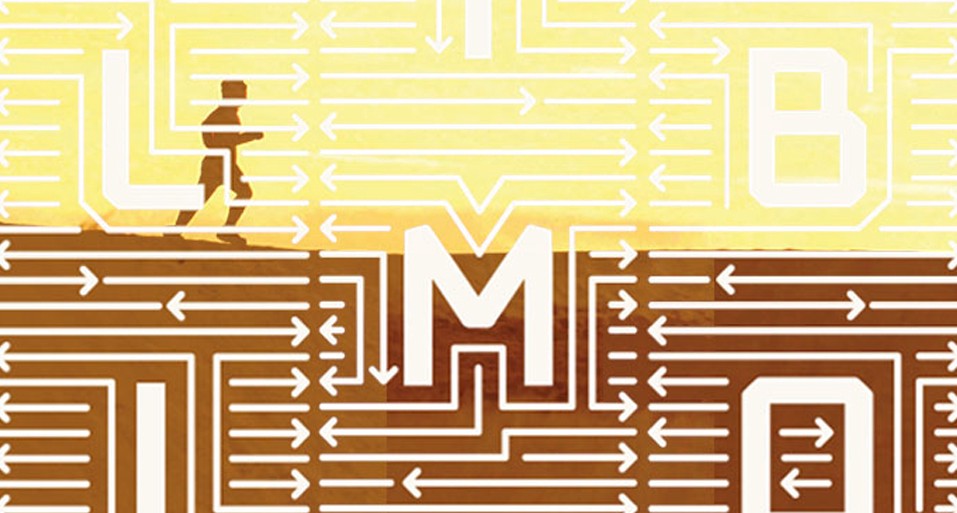Books & Culture
REVIEW: Limbo by Melania G. Mazzucco

It can sometimes seem like war is a specifically American pastime. This is the case particularly with the wars in the Middle East, since it’s easy to forget that the United Kingdom, Germany, Italy, Jordan, Turkey, Bulgaria and Romania, amongst others, have also sent troops to fight the Taliban. But as far as English-language literature goes, the Iraq and Afghanistan narratives have thus far been restricted to the likes of Kevin Powers, Ben Fountain, and Phil Klay — that is, white American men. But that is no longer the case.
Melania G. Mazzucco, an Italian writer whose novel, Limbo, was translated to English by Virginia Jewiss, offers an original take on the disillusionment of war. The novel itself exists in a sort of limbo, unfolding in the strange winter days that fill the end of the old year and the beginning of the new.
Just before Christmas, Manuela Paris returns to Italy from the war. She’s nationally recognized as a hero, albeit a broken one. During the opening of an Afghani girls school, a twelve-year-old suicide bomber detonated close enough to Manuela that she was sent home with crippling flashbacks and a body that may never fully heal. With her very identity tied to her image as a fighter, Manuela struggles to readjust to the slow life of her seaside hometown.
In the off-season hotel across the street, a shadowy figure slowly materializes into a character, and eventually into Manuela’s lover. Mattia helps Manuela heal, but reveals nothing about his strange past. Manuela’s best friend, her sister Vanessa, remains suspicious of this unforthcoming stranger, but he allows Manuela to evolve from a dark, angry victim into someone with the strength to reflect on her past.
Structurally, “Limbo” alternates between “Live” chapters and Manuela’s “Homework,” an assignment from her psychologist who’s told her to write down the experiences of Afghanistan. These first-person accounts offer a contrast to the star-crossed yet damaged woman she is in the “Live” sections; in the Middle East, Manuela seems a completely different character. Alternatively, the “Live” chapters are, on the whole, less successful, and at their worst, a close-omniscient racket. In a chance encounter with a policeman, for example, Mazzucco writes:
“ID” the officer insists. Harshly, because headquarters radioed in about a brawl that involved racist insults that had broken out on the soccer field just as he was about to go off duty, and he and his wife have to go to a dinner at his in-laws, out in the country, almost an hour’s drive, and he has to shower first, and now he’s going to be late, fucking hell.
But the “Homework” sections boom with a view of Afghanistan that is refreshingly un-American; Mazzucco’s is a distinctly Italian war. Walking the fine line between support-the-troops-but-hate-the-war, she observes through a supporting character:
Don’t you think the twenty-first-century Italians should break the spell of history that compels them to act like servants in other people’s wars? It’s been this way since even before Italy existed as a nation. The Crimean War, World War I, World War II, Yugoslavia, Somalia, Iraq. We go to war so as not to be left out, but without any real reason, which means we end up being there without real conviction, without the consensus of the people. It must be frustrating to be a soldier in a country that makes war that way.
Mazzucco is especially empathetic toward Manuela’s right to fight in a man’s world. One incident of bullying resolves in Manuela leaving a bloody tampon on a peer’s pillow, proving that she doesn’t use her womanhood as an excuse to be treated more delicately.
I’m a woman and a commander. And I represent my country…It took us two thousand years to get here, it may seem like a travesty to some, but to me it’s a victory…
Compared to the ferocity and vibrancy of Mazzucco’s research and politics in the “Homework” parts of Limbo, Manuela and Mattia’s romance is hard to believe. Mattia falls unreservedly in love with Manuela and, by all appearances, is written to be a “Prince Charming” through and through. The romance unfolds as all romances do: Manuela throws away her nice, do-no-wrong boyfriend from before the war for Mattia, who, although slightly edgier, seems of the same cut:
He kisses her again, and when his tongue is tired he slips his mouth and nose under her sweater as well. Just then the enormous shadow of an Airbus cover them, five hundred people who could look down into the dark mirror of Lake Bracciano and wouldn’t see them. No one can see Sergeant Paris, who lets herself be touched, licked, sucked, caressed by a stranger on a paddleboat. She is invisible. There’s no smoke when wind fans the flames. Reprehensible behavior. A black mark on her record. What the hell, she’s on leave. And she doesn’t even know if she’s still in the army.
Mazzucco tends to lean on unnecessary intensifiers and an over-reliance of familiar similes in her prose; the entire narrative, as a result, feels forcefully insistent. It’s also redundant: Manuela’s complexities are compelling enough to carry the story forward without the demand.
Limbo takes its title, in part, from the reoccurring reference to the Radiohead song, “In Limbo.” However, a better choice might just have been “Karma Police,” where singer Thom Yorke laments, “For a minute there, I lost myself.” Manuela’s minute is only a few weeks, because when Mattia’s love is introduced, her recovery is instantly assured. Why Mattia comes across as the hero who saves Manuela — she being a warrior who has never needed a man to come to her rescue — and why the emphasis of the novel switches to revealing his “secret” seems an empty question. Limbo reverberates when it’s a war story; the rest, it seems, is a fantasy world.

by Melania G. Mazzucco










